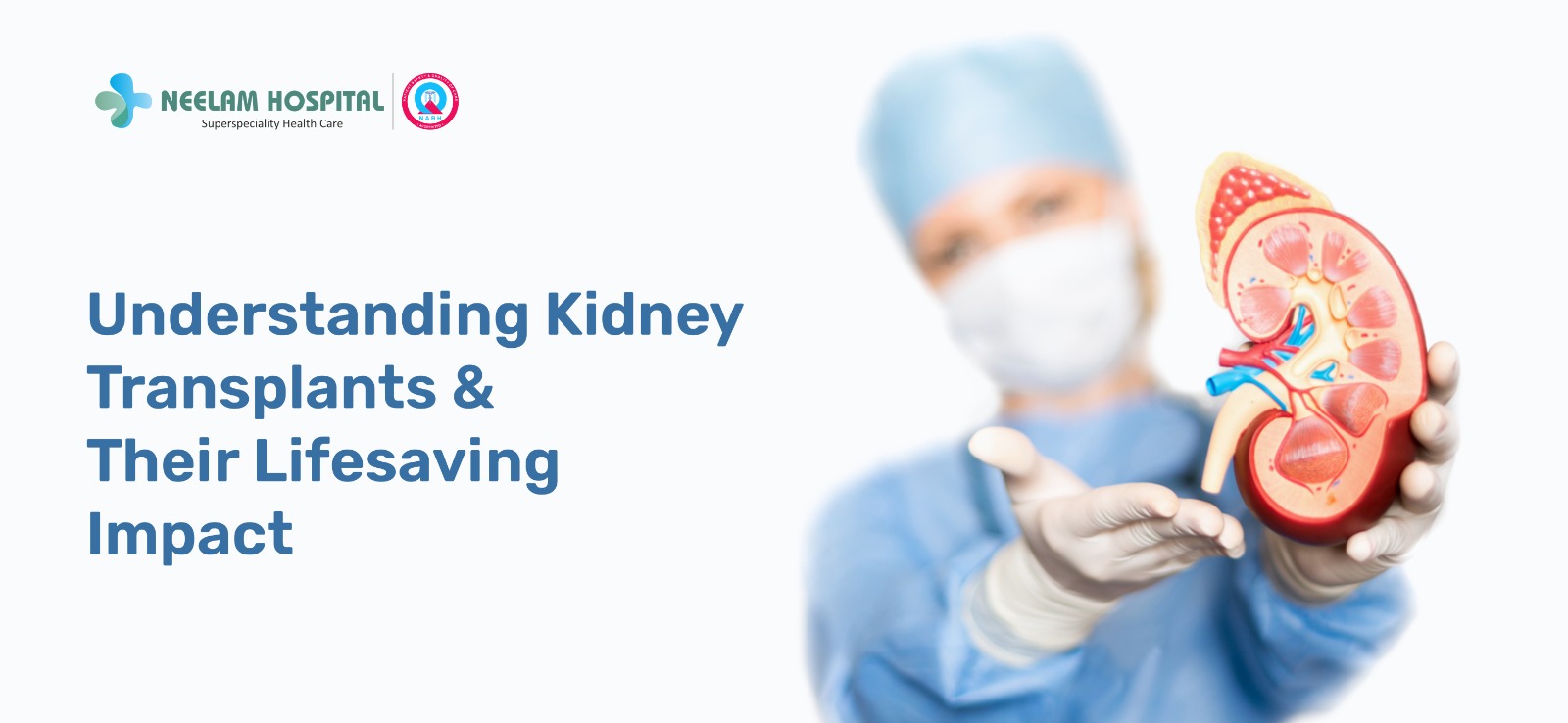




Chronic diseases are on the rise globally as factors like aging populations, sedentary lifestyles, and increasing rates of conditions like diabetes and hypertension are becoming more common in the existing era. Awareness about the prevalence of Chronic Kidney Diseases is crucial because it serves as a lifesaving opportunity for many, avoiding critical situations like kidney failure and emphasizing the need for early detection and intervention. Although opting for a renowned, trusted and best hospital for kidney problems is the ultimate key to 100% satisfaction, being aware of the progression of kidney diseases and recognizing signs of kidney failure is essential for individuals to seek timely medical attention.
Kidneys play a significant role in ensuring our body functions accurately. They diligently purge around 45 gallons of blood daily to eliminate harmful waste. The seamless operation of our body depends heavily on this vital process of kidneys. However, when the curtains fall on the kidney’s performance, a grim scenario unfolds. This results in the malfunctioning of the vital waste disposal system, allowing toxins to linger in the body, elevating blood pressure to hazardous levels, and ultimately culminating in an ominous specter of kidney failure.
Embark on a transformative journey with Neelam Hospital, one of the Best Kidney Transplant Hospitals, where a seasoned team of highly skilled Nephrologists unravels the complexities of kidney health. Their comprehensive services extend to various facets, from live transplants to addressing kidney diseases, including groundbreaking solutions like ABO blood group incompatible kidney transplants.
There are two pathways you can unveil while addressing kidney failure:
1. Renewing Vitality with Dialysis
The first option is undergoing dialysis, a sophisticated process that mimics the intricate filtration mechanism of the kidneys. It is commonly known as the artificial blood-cleansing procedure and plays a vital role in eliminating harmful toxins from the human body. Dialysis is a comprehensive procedure that offers respite for those grappling with non-functional kidneys.
2. Enjoy Renewed Life through Kidney Transplant
The transformative and life-saving surgical procedure involves replacing a damaged kidney with a healthy one sourced from a donor. Kidney transplant is a significant hope for new life for those navigating the complexities of kidney failure.
While facing the complexities and challenges of kidney failure, individuals are recommended to opt from these vital avenues for treatment. Sometimes, only kidney transplant is the only way to survive but, that too, should be guided by the Best Multispeciality Hospitals in Punjab and dive into the realms of these two treatment modalities only after the recommendation of a renowned medical professional.
If you are impressed with the narrative that a kidney transplant is the last solution for those suffering from the complexities of kidney failure, it’s time to reconsider the fact. You need to explore the transformative potential of kidney transplants offered by top kidney transplant hospitals and allow individuals to enjoy a healthier life.
Let’s now debunk the myths surrounding kidney transplants by offering you a more comprehensive view to make more informed decisions and regain vitality to effectively overcome the challenges of kidney failure and embrace a vibrant and healthy lifestyle.
Myth #1 – Kidney Transplant – The Final Treatment When All Other Treatments Fail
It’s a common and popular belief among many individuals as they believe that it’s the final option after all other options won’t work. You should get over the myth because if you think about this option earlier, you opt for the most effective modality for treating kidney failure. In fact, by choosing a kidney transplant as the first option, you opt for the prospect of an extended and higher quality of life. Experienced Nephrologists associated with the Best Multispeciality Hospitals in Punjab can brief you better on how good a kidney transplant is rather than facing the challenges of regular dialysis.
Myth #2 – It’s an expensive procedure
While a lot of people perceive kidney transplants as an expensive and rare procedure in comparison to dialysis, the long-term costs tell a different story. Dialysis, with a financial burden and lifestyle restrictions, may lead to frustration and compromise on the overall well-being of the individual. In comparison, a kidney transplant emerges as a comparatively safer and cost-effective option.
Myth #3 – Shortage of Available Kidneys
Lack of awareness and education about kidney donation may lead to reluctance among potential donors. Although the criterion is quite stringent, with factors like blood type, tissue match, and medical urgency, initiatives like legislative changes to encourage organ donation can have a positive impact. Positive things can make kidneys more accessible and individuals can choose life-changing options from the start, avoiding the limitations imposed by dialysis.
While there are renowned, credible, recognized, and trusted top kidney transplant hospitals like Neelam Hospital, you also need to make informed decisions about embracing a healthy lifestyle. Education and awareness, consultation with experts, considering long-term costs, exploring modern treatment facilities and looking for the best multispecialty hospitals like Neelam Hospital are the best things you can do to pave the way for a healthier, more vibrant life with a proactive approach to kidney care. It’s important to note that efforts are being made globally to address these issues and top hospitals are also playing their role significantly, it’s now your turn to dispel myths and opt for the strategic decision that can prove to be a game-changer in terms of enjoying a vibrant lifestyle.
